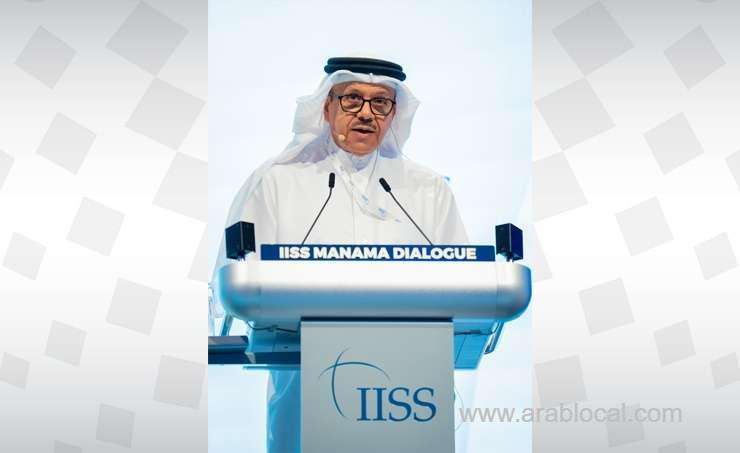
Dr. Abdullatif bin Rashid Al Zayani, Minister of Foreign Affairs, has commended the keynote address delivered by His Royal Highness Prince Salman bin Hamad Al Khalifa, the Crown Prince and Prime Minister, during the inauguration of the 19th edition of the Manama Dialogue yesterday.
The minister praised His Royal Highness for articulating the principled and unwavering stance of the Kingdom of Bahrain regarding the distressing situation in Gaza. His Royal Highness condemned the killing of innocent civilians, advocated for de-escalation, urged the provision of urgent humanitarian assistance and basic services, called for the release of innocent civilians held hostage, and emphasized the necessity of collaborative efforts to end the ongoing war.
The Foreign Minister added that the Crown Prince and Prime Minister explicitly stated that resolving the Palestinian-Israeli conflict requires a two-state solution. This solution should recognize and fulfill the aspirations of the Palestinian people for a viable, secure, and independent state where they can develop their social and economic lives. Additionally, there is a need to acknowledge Israel's security concerns to ensure regional security, as the absence of this recognition may leave the region on the brink of conflict and instability.
The minister made these remarks while addressing the second plenary session titled "Navigating Global Competition," part of the 19th Manama Dialogue Conference organized by the International Institute for Strategic Studies (IISS) in collaboration with the Ministry of Foreign Affairs.
Highlighting the historical backdrop of international competition in the Arabian Gulf and the Middle East region, the Foreign Minister emphasized the region's enduring struggles resulting from political, diplomatic, economic, and military strategies employed by countries within and outside the Middle East. He noted that this competition has led to ongoing conflicts, instability, human suffering, and the denial of opportunities for the region's countries and peoples to realize their full potential.
The minister stressed the world's need for a framework of common principles and values to guide the actions of all involved parties. Bahrain believes in the importance of mutual respect, dialogue, and tolerance, which are crucial for managing global competition, fostering peace, stability, and prosperity in the region and beyond.
Dr. Al Zayani expressed confidence that positive redirection of competition in the region and beyond is possible by promoting and defending these values and principles globally. This approach demonstrates their significance to all states, societies, and peoples as an opportunity for cooperation, mutual benefit, and shared solutions.
The Foreign Minister acknowledged the deep-rooted and complex challenges in the Middle East, emphasizing the necessity of addressing key themes and issues for a better future. Chief among these is finding a permanent solution to the Palestinian-Israeli conflict, with an urgent call for de-escalation in the Gaza Strip, protection of civilians, establishment of a ceasefire, and facilitation of humanitarian relief.
He emphasized the need to recognize the rights and aspirations of the Palestinian people for the establishment of an independent, secure, and viable state alongside the State of Israel. Dr. Al Zayani warned that without resolving the Palestinian issue, the region will remain susceptible to conflict and instability.
The Foreign Minister also underscored the importance of addressing the presence of violent non-state actors and proxy groups in the region, advocating for their disarmament to promote the rule of law, strengthen state institutions, and establish inclusive governance for a more stable and secure environment.
He highlighted the significance of interdependence among the region's countries in achieving a stable and secure Middle East through economic integration, joint ventures, trade expansion, and cross-border cooperation. Dr. Al Zayani explained that such interdependency would allow the region's peoples to benefit from common resources, experiences, and opportunities, contributing to overall prosperity, peaceful coexistence, and the resolution of conflicts.